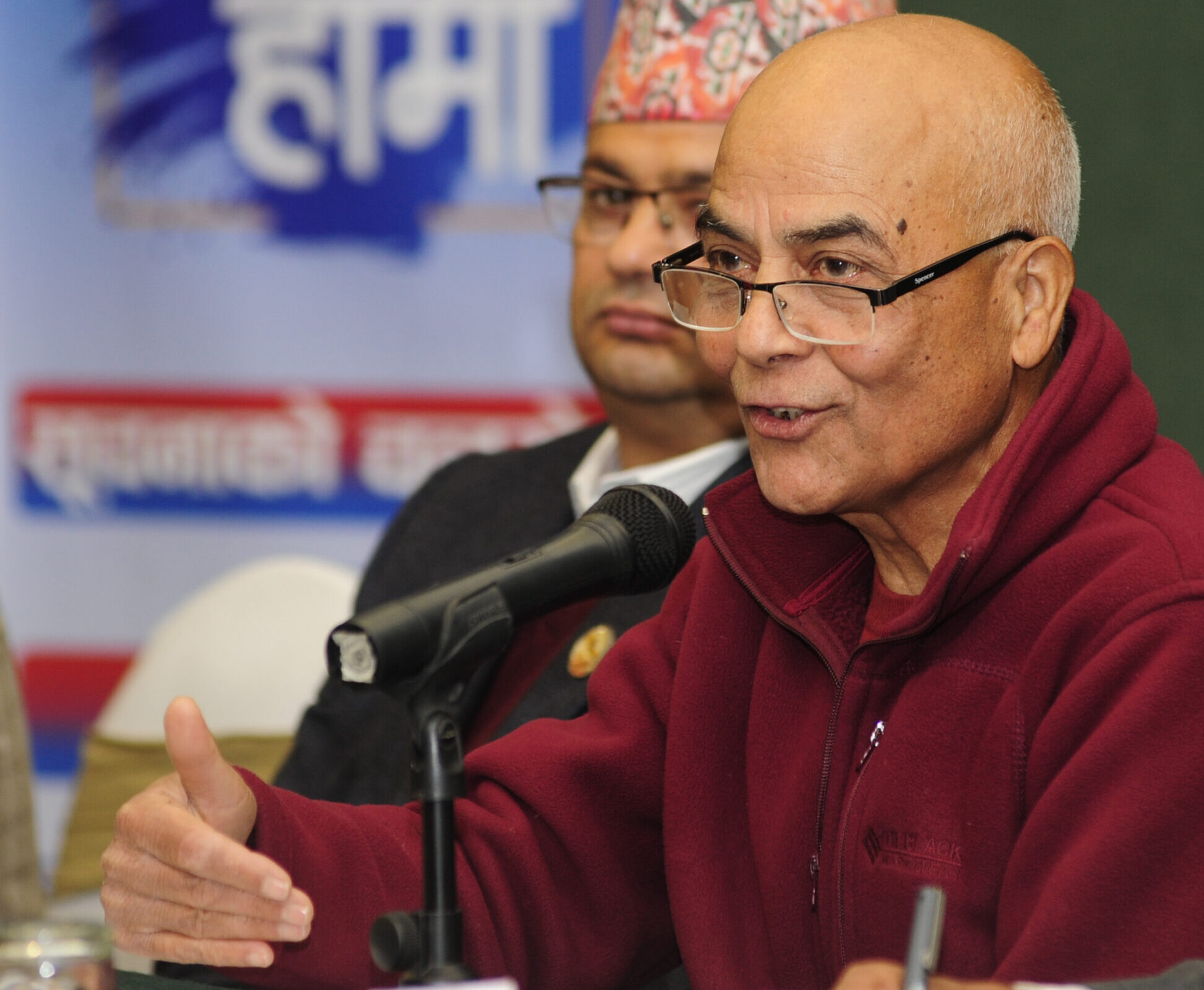(This essay is the edited part of the working paper presented at CMR Nepal’s program – ‘Interparty Dialogue on Information Manipulation and Democracy’ organized on February 24 in Kathmandu.)
- By Bhojraj Pokharel, former chief election commissioner
Well-informed people are the pillars of democracy; they are also its watchmen. Political parties have long played their role in raising awareness among the people. They had their own channels, mouthpieces, weekly newspapers, and a reliable line of sources to convey information. The leader of every communicative event would give meaning, making followers aware of its relevance in our society. Especially since the nineties, that channel gradually shifted to mass media and reached social media in the current decade. We all understand this reality.
The free flow of information has been encouraged as informed people are the pillars of democracy. However, looking at the speed of development of technology, there is no environment in which only good information, chosen by responsible people, can reach the people without causing harm.
Due to the diversity in the production and broadcasting of information, malinformation, and misinformation will enter the world of information, and the ranks of ill-informed people will be formed. When efforts, trends, characters, and means to misinform the people become stronger than informing the people, it is clear that the place of democratic methodology and democratic leadership development will be replaced by folk idealism or individual miracleism and the people’s attraction towards them will also increase.
Democracy, which had to be frightened by guns before, has now come to a situation where it has to be frightened by phones.
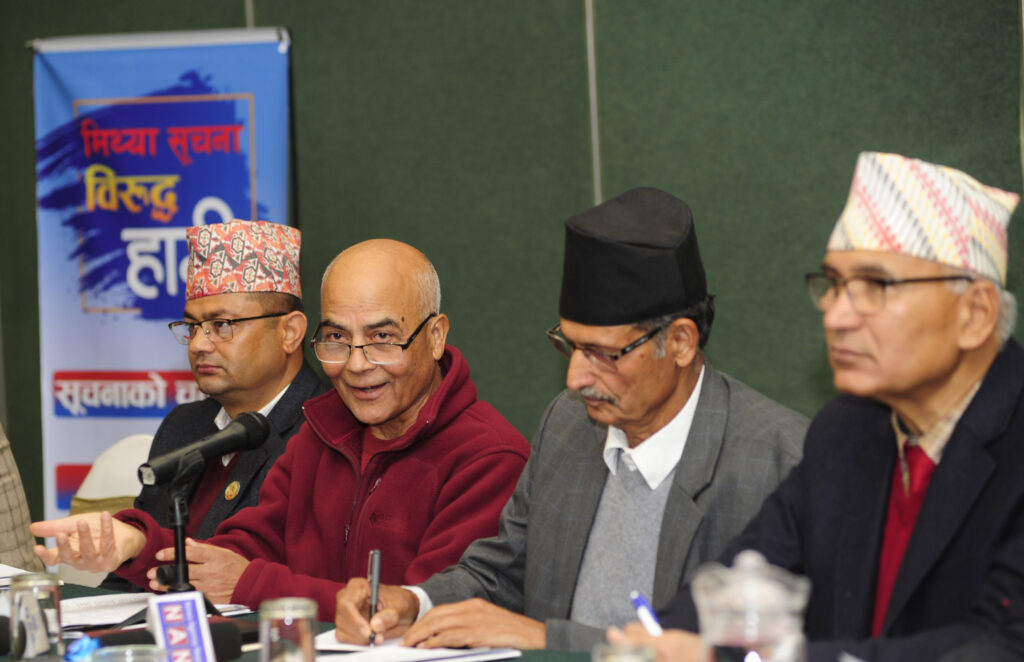
A common person can express what they see; the situation where they can become material producers themselves is within the advanced practice of democracy; they directly connect with the ruler, criticize the ruler, and make the ruler accountable. However, they also express the point that the fact that an organized group, a group that bakes its bread by destroying the reputation of democracy, is becoming a loyal consumer of the rotten dose, and that it is becoming a means of broadcasting the products of such corrupt individuals or groups, is a matter related to the future of democracy.
In an organized manner, producing and broadcasting information intended to destroy people’s loyalty to democracy is certainly not focused on strengthening democracy. To lead the people astray, their faith must first be manipulated. Only people whose faith is shaken can be turned against democracy and democratic leadership through bad information. The characters involved in information manipulation know this very well.
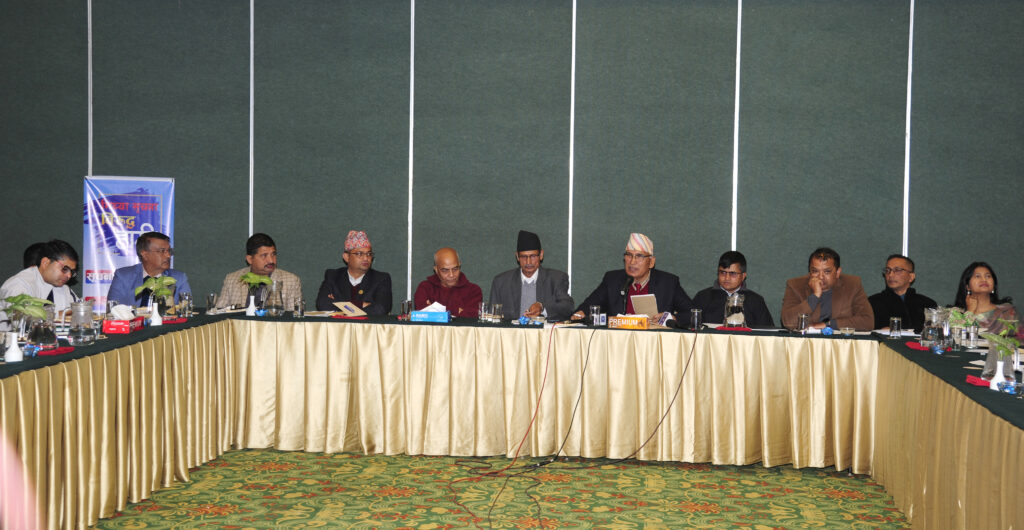
Nowadays, I have a feeling that the faith in democracy in Nepal is beginning to waver. Democracy has only done bad things, before this Nepal was a paradise, and if we can throw away this democracy, Nepal will become a paradise again. During democratic practice, some bad things have been seen, especially the narrowness of parties, self-centered decision-making processes, corruption, partisanization of democratic institutions, weak governance, etc.
But, is the country in decline in the present system than in the previous system? Of course not. However, those who are in a position to defend the good deeds done now are not defending them honestly. Because they are weak on their own ground, or because the seriousness of the subject matter is ignored, or because they see their future in creating such commentaries, they are usually silent against such organized campaigns to incite the people. Rather, it seems that those who have fought for democracy for 60-70 years by spreading mud for vested interests are getting shaken. Under the guise of mud, the comment that ‘everything is bad’ is becoming stronger in the Nepali public.
We have seen that there was a movement in favor of democracy when the power of information was in the hands of the people. Especially the ‘April Spring’ which started from December 2010 brought a wave of democracy to the politics of the Arab world. “Social media” remained as the messiah of that movement. However, social media not only empowered the common citizens but also gradually became stronger itself. Taking advantage of the weakness of the mainstream media, it gained the support of the people. It established itself as a means of expressing public anger and frustration caused by poor government delivery, rising unemployment and corruption, and political parties and especially satlipsa at their leadership level. Now, that frustration and the lack of access to social media has become a threat of being used against democracy. Organized campaigners are using ‘social media’ as a tool to undermine democracy, increase subversive thinking, increase violence and fulfill their political strategic ambitions by dominating the minds of people with mobile phones in their hands.
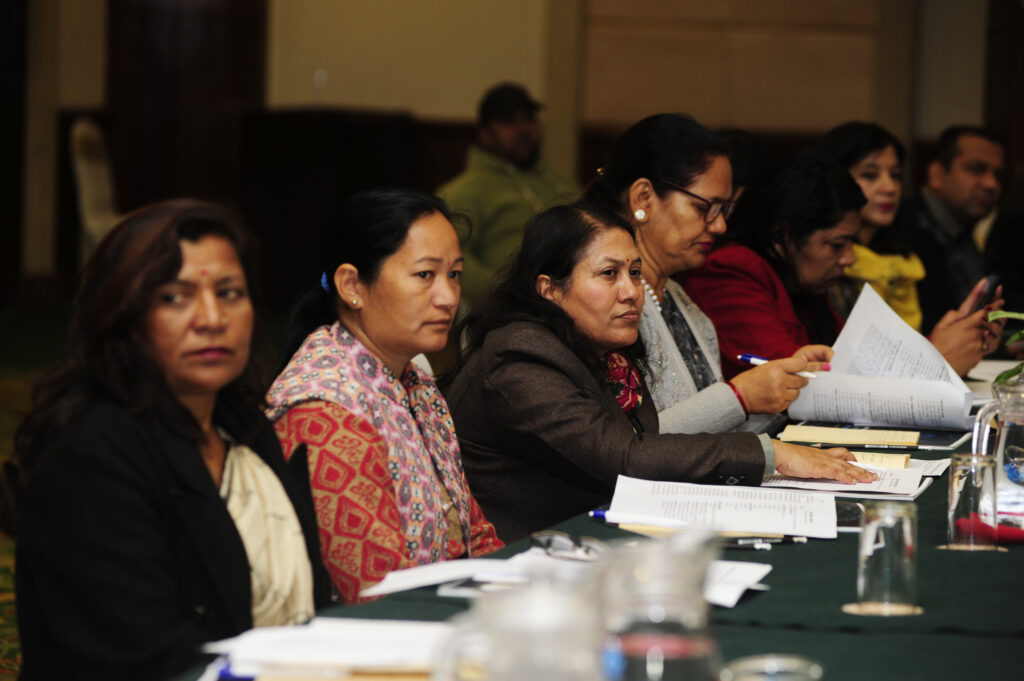
Apart from a few exceptions, the meeting between two Nepalis from any corner of the world, including Nepal, begins with the remark that ‘the country is in a state of ruin’. From the time you wake up in the morning until you go to bed, the news, thoughts, debates or reactions that come on the radio, magazines, TV or social media, variously comment that the country is doomed. If someone posts on social media that not only bad things have happened but also good things have happened, they will immediately be demonized, and they will try to expose them by making accusations that did not happen.
The question is which way are we going?
Looking at the World Democracy Report 2023 released by International IDA, based on the data of 173 countries in the world, it is seen that democracy is weakening and authoritarianism is dominating all over the world. Looking at Nepal’s surveys, the graph of credibility towards political parties and their leaders is on a downward journey. Where is the problem? The political circle does not seem to have taken it so seriously. Maybe we don’t understand. When public opinion turns against democracy, the one who will be the first strike does not seem to be hot. We gossip seriously outside, the food will not cook if the egg is heated more than the heat. The religion of the opposition was to warn the government and did nothing! However, it is surprising. The one who is in the government also talks about the end of the country.
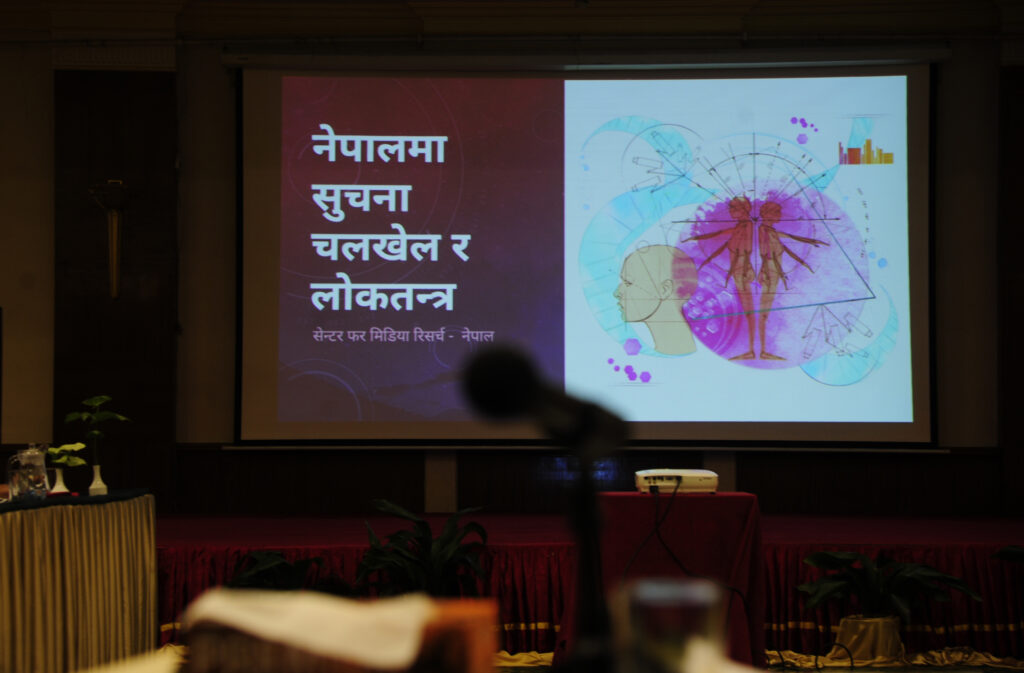
Positive things don’t sell and don’t last in a society where negativity is sold. In social networks, there is a desire to increase likes and become viral by setting up an echo chamber. Recently, AI has entered it. By analyzing the age, geography, interests, and political affiliations of the users, the trend of automated messaging to touch the emotional side and increase excitement has become widespread. Even in developed countries, there are many examples of social media platforms producing false information and propaganda. In the run-up to the 2016 US presidential election, the false story that Pope Francis supported one candidate and another candidate sold weapons to the ISI was retweeted or forwarded thousands of times.
![]() In our context, a quick look at the comments that are currently being made on social media shows these 7 types of trends:
In our context, a quick look at the comments that are currently being made on social media shows these 7 types of trends:
- The biggest attack is against the Constitution of 2015 and its achievements. Moreover, when you have to sneer at anything or disagree with it, you are attacking the ‘republic’.
- There is an emphasis on discrediting the party or leadership that is taking place or has played a key role in bringing about this change,
- There is an attempt to undermine or discredit the pillars of the Republic,
- The 2072 constitution, which was considered as an achievement, is targeted at them.
- Tends to show that the government is incompetent to deliver and govern,
- It is tried to show that the citizen is in support of hero or populist leadership
- Insignificant space has been given to positive achievements and efforts in the society.
The question arises, why did this situation happen and who is responsible for creating this atmosphere?
Unknowingly, we are all trying to create such an atmosphere. I do not see that all of us gathered here should hesitate to admit that it is our collective failure to come to this situation. From party leaders to workers, it seems that they have pulled out all their might to expose the opposition. We see that all of them have been exposed by the practice of exposing each other by using the cyber army. This gave a dose to the media. The parties are on the same ship, they have not seen the need to think in the direction of what will be the result if the ship sinks. Unfulfilled dreams shared by themselves for popularity are the roots of despair and are also great weapons to overshadow some of the good works done. This ‘populism’ has increased under the guise of them, when people believe the gossip of Chattu and Ghafadi, the emotional public opinion of the people is relying on misinformation, false information and bad information.
Party activists and conscious citizens seem to be the leaders rather than ordinary citizens to create a toxic environment in the country by creating comments that nothing has happened in the country, the country is ruined, there is no future in this country, there is only loot, insecurity, nepotism, nepotism, corruption and bribery in the country. Of course, the dose is given by responsible leaders and conscious citizens. On that foundation, the cultivation of despair has flourished.
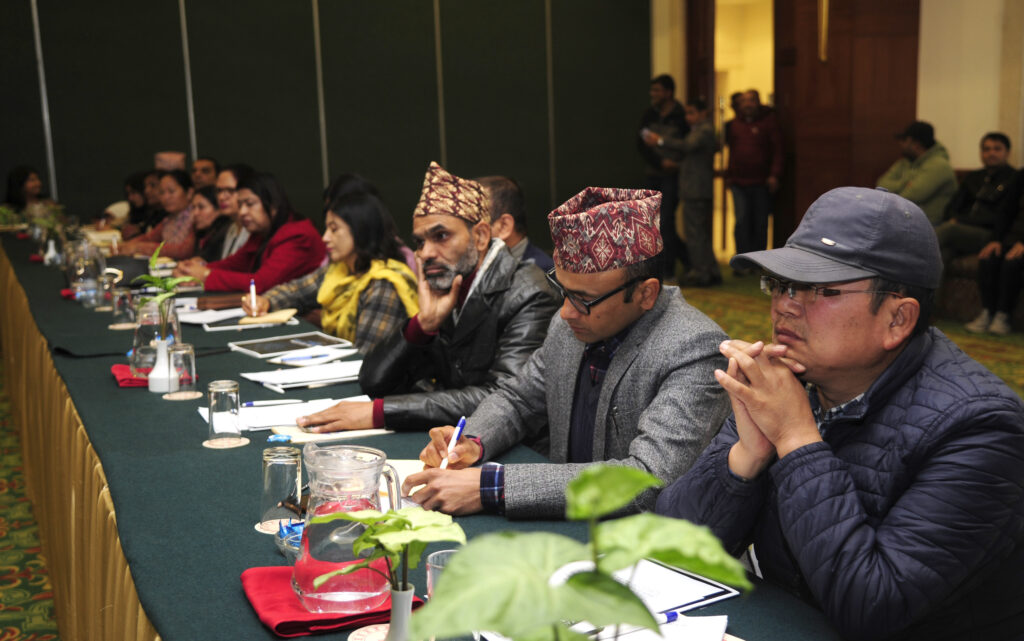
If we had been able to improve the governance and the flow of services in a way that the common people could understand, perhaps such a situation would not have come so soon. The behavior of some leaders for the sake of power and the corruption done by others have fallen on the republic and its achievements. The system did not run by itself, it depended on the hands of the operator. And social media gave space to the feeling of those who want to discredit the system by forcefully imposing it on the shortcomings of the driver. And whoever is looking for an opportunity, he will try to save the disappointment in cash. In the name of lack, caste, religion, sect, or anything else. Those who were displaced by yesterday’s changes or disagreed with the changes, such situations can surely give them joy as if they were taken away from Luto. This may be what you are looking for.
Social media is also becoming chaotic now. Especially, the destruction of truth and deep fake caused by this has become a matter of interest and concern for the world. During the hearing held by the US Senate recently with the heads of social networks, some senators said – you have blood on your hands. You have a product that kills people, platforms have become ‘information killing fields’. Where the user shows only one side of the issue.
In this process, the tech companies also not only said that they have their weaknesses and tried to improve them, but they also admitted that criminal tendencies played a role in it as the use of the Internet increased. Also, AI, mobile technology, Chat GPT, recently introduced AI source, Google Gemini, etc., which will make the world instantly audible and visual based on the word order (prompt) to make such a video, and where will it lead to the state of information movement or the state of propaganda? Will you deliver? There is a situation where you can’t do it. During the recent elections in Pakistan, the video message of Imran Khan, the former prime minister of Pakistan, who is in prison under tight security, was able to turn the tide of the election. Now, what will be done with the technology of Zhan AI Sound, it is beyond imagination.
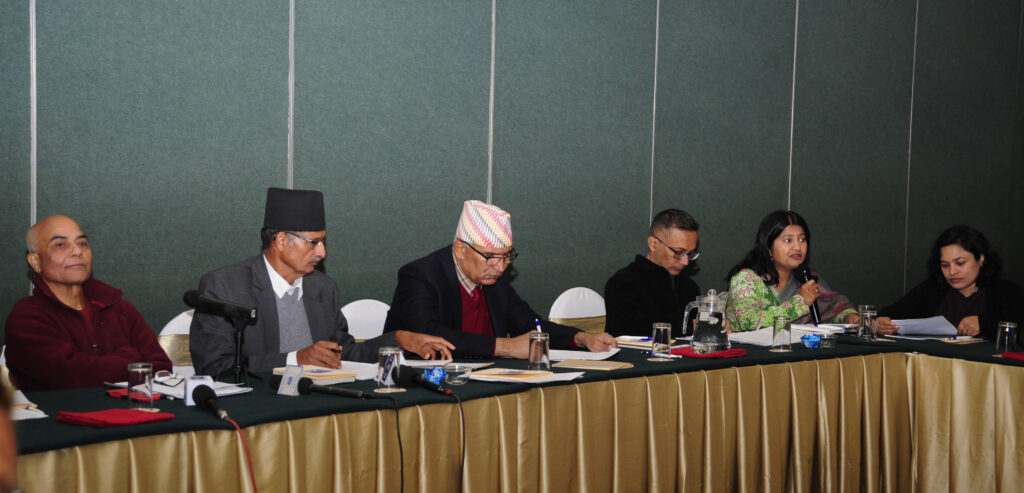
Looking at the geopolitical situation of Nepal, it seems that information manipulation should be taken more seriously. If influential countries like the US or the EU find it difficult to protect their elections from international interference through social media, we need to take immediate concrete steps when looking at the control over the geography, population and technology of our neighbors. Ethnic, religious, geographical, and ideological diversity has increased the risk. If a critical mass is created, there is a lot of possibility to create trouble at any time. It cannot be denied that social media can be a powerful tool to cash in on the growing frustration in the country.
It is my request that the political forces should always be alert to the fact that the main pillars of democracy including parties are weakened by establishing the comment that democracy cannot deliver, along with various forms of extremism, and when extremism is widespread in the general public, extremism can destroy them and attack democracy.
Therefore, the discussions in such programs should not be seen as heating the eggs before they are heated. We have repeatedly done the practice of breaking the system and building a country through the miracles of a particular person. Even our nature, diversity, and external connections do not allow us to move the country forward in the singular vision of a miraculous person. Pushing the country to the path of extremism and establishing the heroism of an individual will again be nothing more than another test. However, fatal test. If the seriousness of the so-called mainstream parties remains the same, those sad paths can become our inevitable paths.
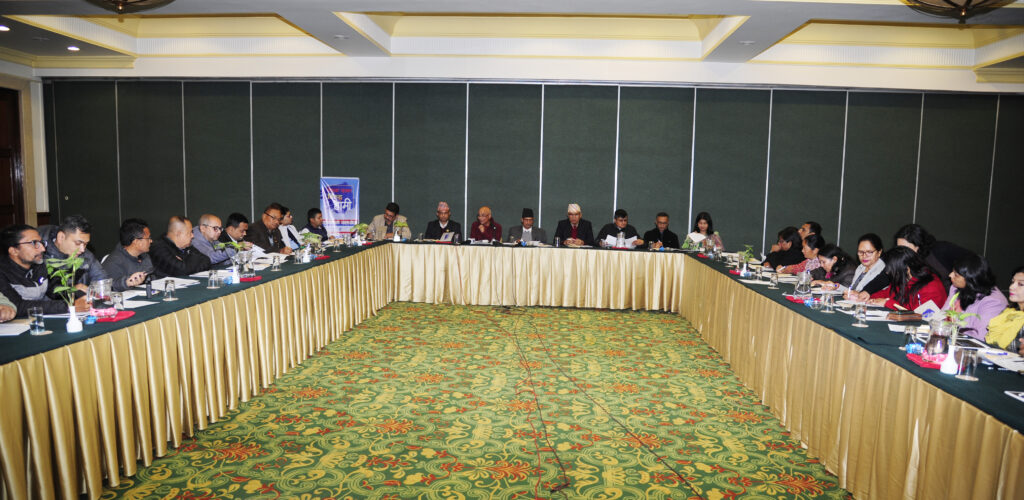
If the work is good, it takes time to manipulate and sabotage their information, if the work is a little good, it is possible to instill hope in the people through information and stop such extremism or miracleism. Even if the parties do a little good work, if they can promote the cleanliness of information, the attack on democracy can be avoided if not completely stopped.
For this, I would like to draw the attention of friends of political parties to the following five points:
- Make a common ground and strategy to deal with it by taking regular account of why frustration has increased in the country and where and what are the country’s political risks. This is everyone’s duty.
- Make the information flow mechanism of the parties and activists factual, responsible, and ethical.
- Emphasize the program to increase the digital knowledge of party workers and well-wishers. Also, issue a code of conduct for social media operation and ask party workers and supporters to use it accordingly.
- Prioritize fact-checking. Collaborate with traditional and new media in disseminating facts and disinformation.
- Collaborate with government, parties, civil society, media outlets, digital platforms on these issues. Let’s all become aware with the time, let’s all rise above our current selfishness and do what we can from our own level, break the current cloud of despair and show a positive way to ‘raise hope’.
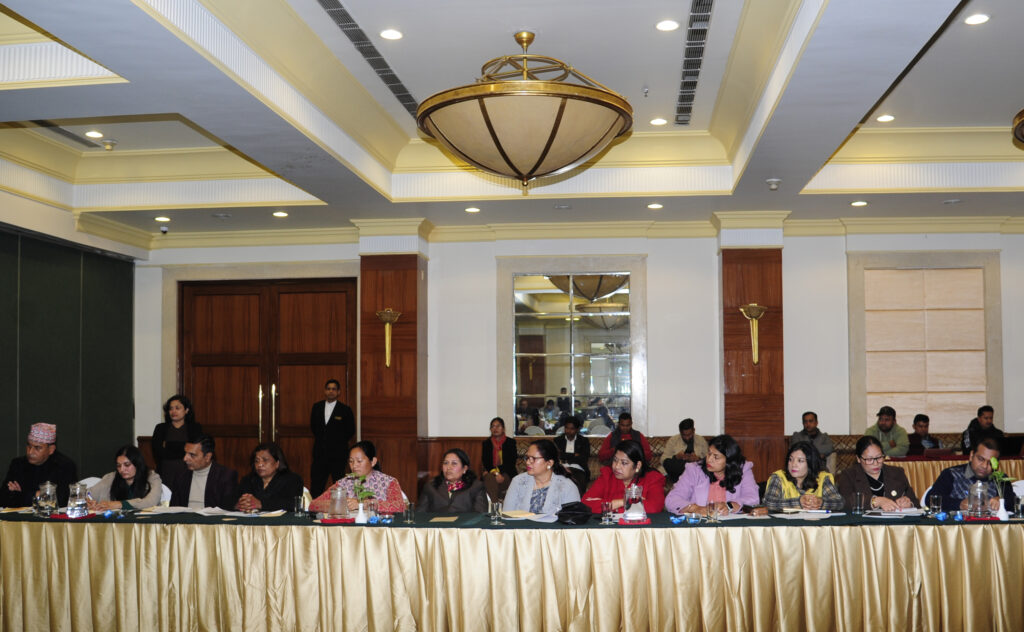
(This working paper was presented in Nepali and is translated by Google Translate and edited for spelling and grammar by ChatGPT 3.5).
